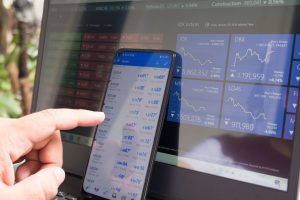The forex market (also known as the foreign exchange market) is the largest financial market in the world, with a daily turnover of around $6 trillion. It has experienced significant growth over the past few decades, and this growth shows no signs of slowing down. In this article, we will explore what has caused the growth of forex.
1. Globalization
The growth of forex can be attributed to globalization. The world is becoming more interconnected, and as a result, businesses and individuals are engaging in more cross-border transactions. This has led to an increase in demand for foreign currencies, which has driven the growth of the forex market.
2. Technology
Another factor that has contributed to the growth of forex is technology. The development of electronic trading platforms has made it easier for individuals and institutions to trade currencies. These platforms offer real-time quotes, instant execution, and access to a wide range of currencies. This has made forex trading more accessible and convenient for everyone.
3. Deregulation
The deregulation of the forex market has also contributed to its growth. In the past, forex trading was heavily regulated, and only large financial institutions could participate. However, in the 1990s, many countries started to deregulate their financial markets, which allowed more people to participate in forex trading. This led to an increase in competition, which has driven down costs and made forex trading more accessible to a wider range of people.
4. Increased liquidity
The forex market is extremely liquid, which means that there is always someone willing to buy or sell a currency. This has made it easier for traders to enter and exit positions, which has increased the attractiveness of the market. The high liquidity of the forex market also means that it is much harder for any one person or institution to manipulate the market, which has made it more trustworthy and attractive to traders.
5. Low barriers to entry
Forex trading has relatively low barriers to entry compared to other financial markets, such as the stock market. This means that anyone with a computer and an internet connection can start trading forex. Additionally, many forex brokers offer low account minimums, which makes it easier for people to start trading with a small amount of money.
6. Volatility
The forex market is highly volatile, which means that currency prices can change rapidly and unpredictably. While this can be risky for traders, it also presents an opportunity to make significant profits. The high volatility of the forex market has attracted many traders who are looking for high-risk, high-reward opportunities.
7. Trading opportunities 24/7
The forex market is open 24 hours a day, five days a week, which means that traders can trade at any time. This has made forex trading more accessible to people in different time zones and has allowed traders to take advantage of news and events that occur outside of regular trading hours.
In conclusion, the growth of forex can be attributed to a combination of factors, including globalization, technology, deregulation, increased liquidity, low barriers to entry, volatility, and the ability to trade 24/7. As the world becomes more interconnected, it is likely that the forex market will continue to grow and evolve in the years ahead.





